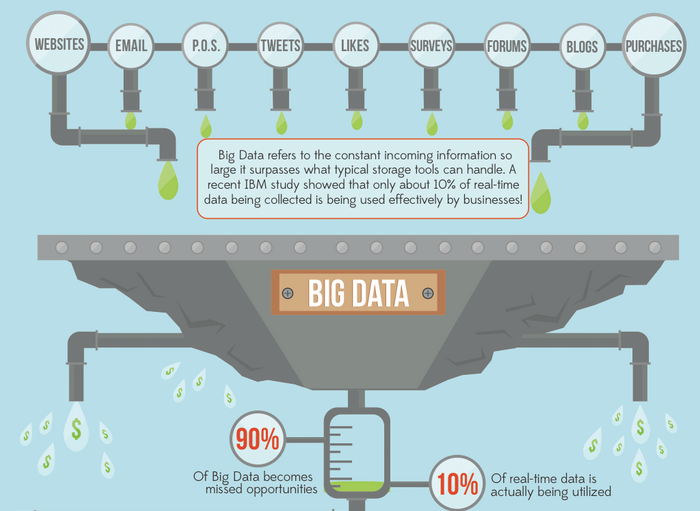Every aspect of doing business generates some kind of data record. Purchasing office supplies generates a receipt that helps you track necessary business expenses. Phoning a client generates a charge on your phone bill that records the act of keeping in touch. Filling a prescription generates a report that must be correlated against a doctor’s record and the pharmacy’s master list of on-hand drugs. No matter what industry you are part of there is data being generated and collected all around you. What do to with all that data?

Old forms of data storage and management
Data storage systems of the past were not very sophisticated when compared with what we have available to us today. Most businesses relied on a straightforward paper filing system organized in alphabetical or numerical order. Paper files would be loaded into metal cabinets or cardboard boxes and placed into storage until they became irrelevant – at which point they were destroyed. Some information-dense environments might have had their files organized by multiple reference axes. For instance, a hospital might have two sets of records so that a person could search by date of admission or by the name of the patient. A library might have had three sets of records to allow searching by book title, author name, or subject matter.
The advantages offered by new forms of data management
We have come a long way from the days of cardboard boxes and metal filing cabinets – or have we? While the tools of big data are increasingly available to businesses and organizations of all kinds, it is entirely common to find dozens of old cardboard boxes filled with files. The advantages of switching to an electronic system of data management are numerous:
- Search among thousands of records in seconds
- Duplicate files, print, or email them with the touch of a button
- Add, remove, and edit metadata tags
- Organize data entries into subsets and subordinate series for more streamlined searching
- Execute basic and advanced searches with many reference points
- Import and export records from other databases
- Create helpful visualizations to share stored data with users
Do you need big data tools?
Big data is a term applied to the very largest sets of information, sets that encompass many terabytes of information and that continue to grow. The tools required for managing this much information are highly specialized and often require ground-up implementation. Most businesses do not need tools this advanced though being aware of them is helpful.
Advanced BI has led to the development of many adaptive and dynamic search tools. While it used to be the case that each business would develop its own search program to manage in-house discovery inquiries, it is now possible to purchase ready-made packages of data tools such as statistics software that are ready to go to work right away. Data-intensive industries, such as health care, communications, transportation, shipping, and IT, have some of the most sophisticated BI tools of all. Select the tools that are tailored for your particular industry.
Each business has to determine for itself whether advanced data management tools are going to help employees access the information required to do their job. The choice really depends on how much information your records actually have. However, a business that has few records may not be compiling all the information required for robust future growth. Even if discovery tools are not necessary at this point, you can be certain that will be some day.









